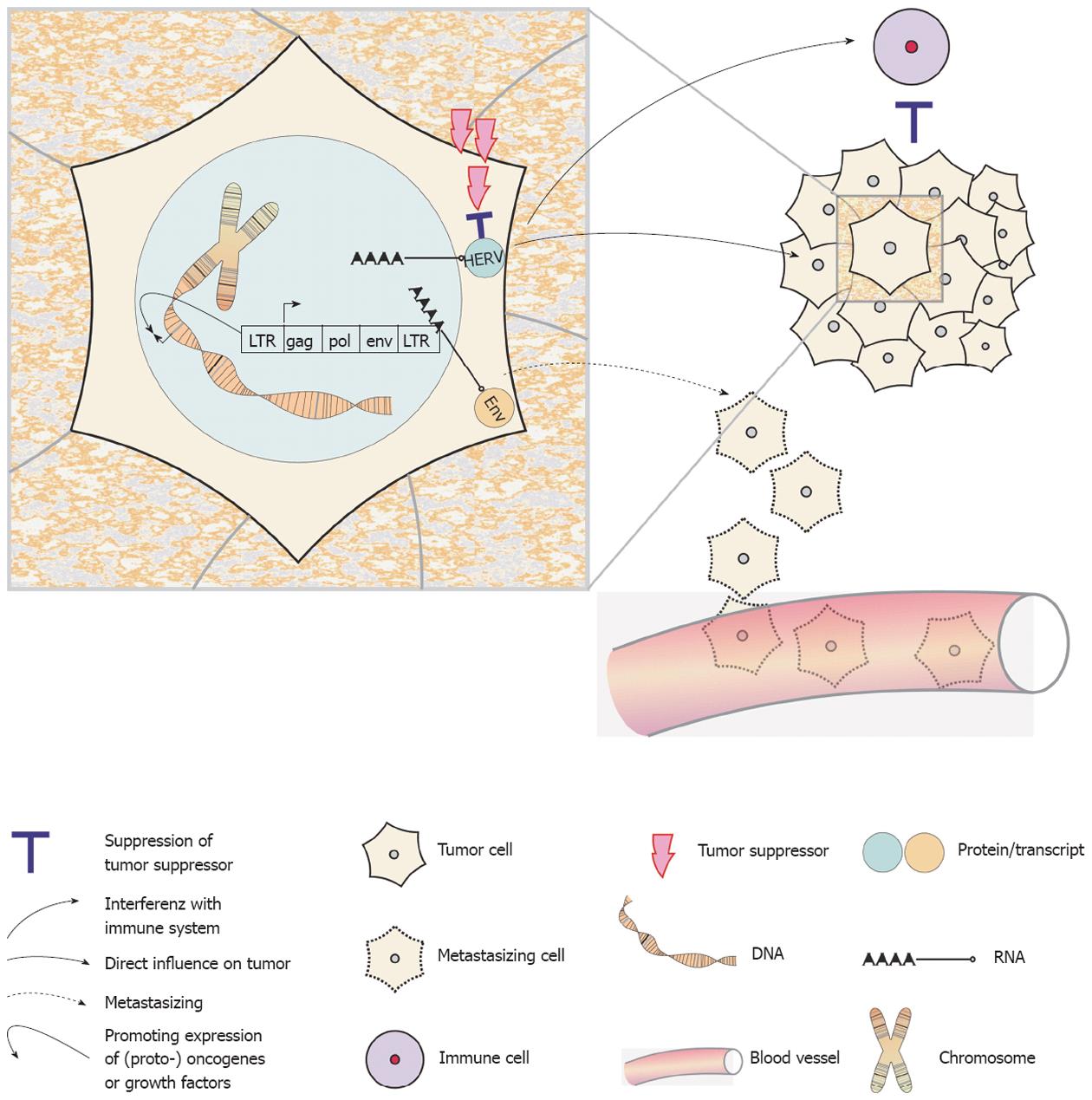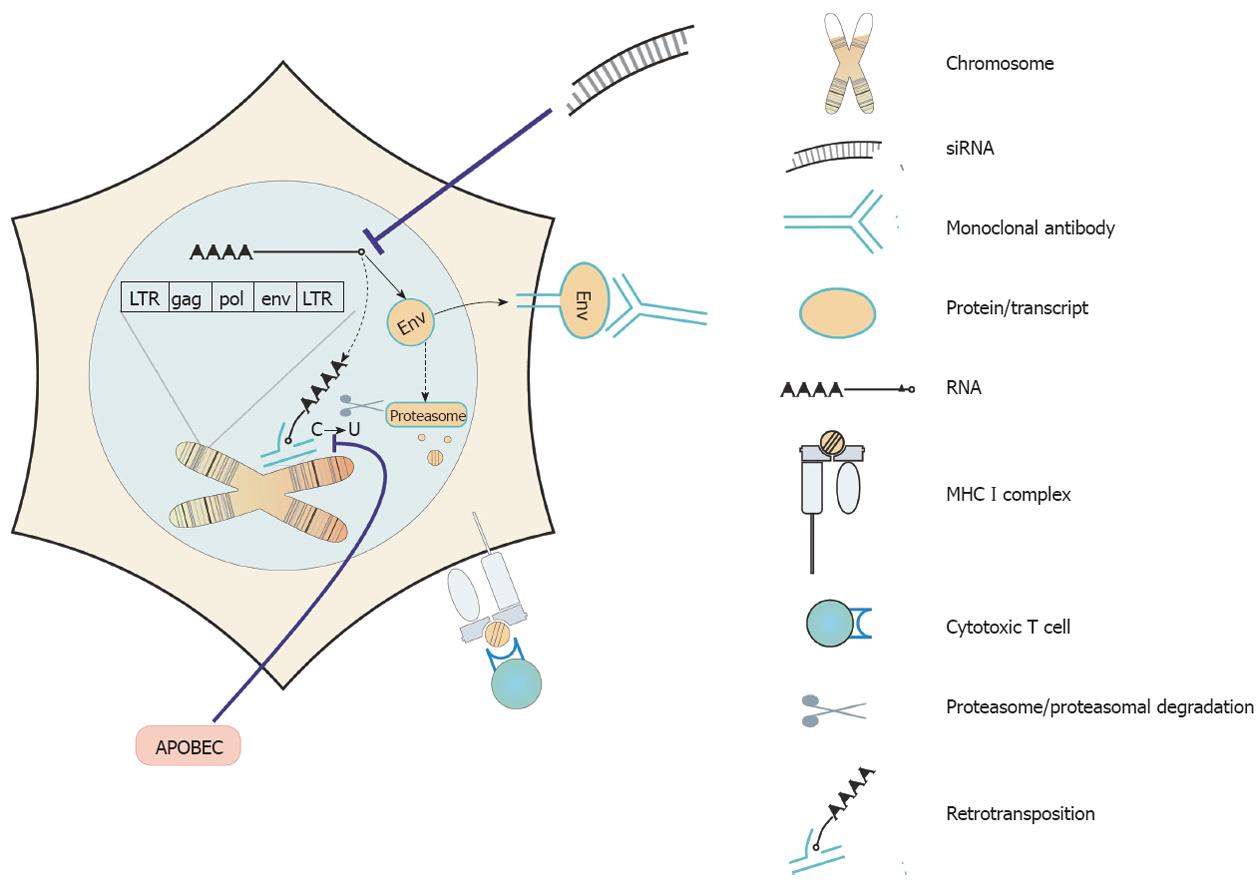Copyright
©2012 Baishideng Publishing Group Co.
World J Gastroenterol. Nov 14, 2012; 18(42): 6027-6035
Published online Nov 14, 2012. doi: 10.3748/wjg.v18.i42.6027
Published online Nov 14, 2012. doi: 10.3748/wjg.v18.i42.6027
Figure 1 Possible mechanisms by which human endogenous retroviruses contribute to oncogenesis.
Human endogenous retroviruses (HERVs) transcripts or proteins may directly have tumor promoting properties. The long terminal repeat (LTR) elements can function as promotors or enhancers for nearby (proto-) oncogenes or growth factors. Especially Env proteins might attract regulatory immune cells and thus provide an immunosuppressive microenvironment. And finally, the Env proteins may be directly involved in the metastasizing process.
Figure 2 Therapeutic possibilities to target tumor cells with active human endogenous retroviruses.
Expressed Env proteins may be targeted by therapeutic monoclonal antibodies. (Re-) activation of retroelement-controlling proteins may help to reduce human endogenous retrovirus (HERV) activities. Small molecule inhibitors of HERV proteins or inhibitory targeting of expressed HERV sequences potentially will prevent oncogenic properties of HERV and harm or kill tumor cells with activated HERV oncogenesis. HERV proteins with tumor-specific antigen properties can be targeted by specific T cells. LTR: Long terminal repeat; MHC: Major histocompatibility complex.
- Citation: Mullins CS, Linnebacher M. Human endogenous retroviruses and cancer: Causality and therapeutic possibilities. World J Gastroenterol 2012; 18(42): 6027-6035
- URL: https://www.wjgnet.com/1007-9327/full/v18/i42/6027.htm
- DOI: https://dx.doi.org/10.3748/wjg.v18.i42.6027










